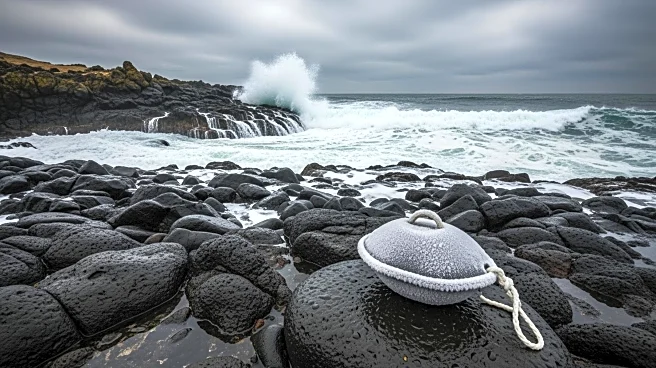What's Happening?
Guillermo del Toro, a renowned filmmaker, has recently penned an essay for The Atlantic discussing the profound nature of fear, particularly in the context of Mary Shelley's novel 'Frankenstein'. Del Toro, who has adapted the classic novel into a film,
argues that fear is a powerful emotion that reveals much about our inner selves and spirituality. He suggests that horror, as a genre, serves as one of the last refuges of spirituality in a materialistic world. The essay coincides with the Halloween season, a time when fear and horror are culturally prominent. Del Toro's reflections are part of a broader discussion on how horror films, particularly those from the 1970s like 'Rosemary’s Baby', inadvertently connect with cultural moments and societal fears.
Why It's Important?
Del Toro's insights into fear and horror highlight the genre's ability to reflect societal anxieties and personal introspection. By elevating fear as a significant emotional and spiritual experience, del Toro challenges the often-dismissive view of horror as mere entertainment. This perspective can influence how audiences and creators approach horror, potentially leading to a deeper appreciation of its cultural and psychological impact. The discussion also underscores the role of horror in exploring themes of existential dread and societal issues, offering a lens through which to examine contemporary fears and cultural shifts.
What's Next?
As del Toro's film adaptation of 'Frankenstein' reaches audiences, it may spark renewed interest in the novel and its themes. The film could also influence future horror projects, encouraging filmmakers to delve deeper into the psychological and cultural dimensions of fear. Additionally, del Toro's essay might inspire further academic and cultural discussions about the role of horror in society, potentially leading to new interpretations and adaptations of classic horror literature.
Beyond the Headlines
Del Toro's exploration of fear touches on ethical and philosophical questions about the human condition and our relationship with the unknown. By framing horror as a spiritual refuge, he invites audiences to consider the genre's potential to offer insights into human nature and societal values. This perspective could lead to a broader acceptance of horror as a legitimate form of artistic and cultural expression, with implications for how it is studied and appreciated in academic and cultural contexts.















